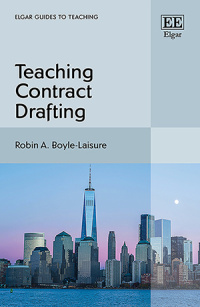Paperback
Professional Judgment for Lawyers
Written by the leading authority on legal decision making, Professional Judgment for Lawyers integrates empirical legal research, cognitive and social psychology, organizational behavior, legal ethics, and neuroscience to understand and improve decision making by attorneys, clients, judges, arbitrators, mediators, and juries.
More Information
Critical Acclaim
Contents
More Information
Written by the leading authority on legal decision making, Professional Judgment for Lawyers integrates empirical legal research, cognitive and social psychology, organizational behavior, legal ethics, and neuroscience to illuminate and improve decision making by attorneys, clients, judges, arbitrators, mediators, and juries.
Key Features:
• Analyzes the quality of decision making by lawyers, clients, judges, mediators, and arbitrators
• Shows how race, gender, age, roles, experience, personality, perception, memory, and emotions affect decision making by lawyers and judges
• Identifies deficiencies in professional decision making and proposes corrective steps
• Discusses the impact of professional judgment and decision making on major societal issues like access to justice, plea bargaining, mass incarceration, superannuated judges, and public confidence in the judicial system
•描述了个人的优点和缺点ecision making styles and provides a self-assessment tool to evaluate individual styles
• Integrates law, neuroscience, psychology, behavioral economics, analytics, and organizational behavior in a comprehensive, multi-disciplinary examination of legal judgment and decision making
This book has the unique capacity to replace idealized, theoretical concepts of legal decision making with empirical analyses and practical applications for lawyers, judges, law students, and other knowledgeable readers intrigued by the law, justice, and decision making.
Key Features:
• Analyzes the quality of decision making by lawyers, clients, judges, mediators, and arbitrators
• Shows how race, gender, age, roles, experience, personality, perception, memory, and emotions affect decision making by lawyers and judges
• Identifies deficiencies in professional decision making and proposes corrective steps
• Discusses the impact of professional judgment and decision making on major societal issues like access to justice, plea bargaining, mass incarceration, superannuated judges, and public confidence in the judicial system
•描述了个人的优点和缺点ecision making styles and provides a self-assessment tool to evaluate individual styles
• Integrates law, neuroscience, psychology, behavioral economics, analytics, and organizational behavior in a comprehensive, multi-disciplinary examination of legal judgment and decision making
This book has the unique capacity to replace idealized, theoretical concepts of legal decision making with empirical analyses and practical applications for lawyers, judges, law students, and other knowledgeable readers intrigued by the law, justice, and decision making.
Critical Acclaim
‘Randy Kiser’s Professional Judgment for Lawyers is a tour-de-force book every lawyer, law student, judge, arbitrator, mediator, and public policy maker should read and study. It draws on empirical research and theoretical models about human decision-making and judgment. The chapter capsules which end chapters offer wonderful syntheses of the breadth of empirical studies and theoretical frameworks about lawyering, decision-making by actors in legal systems, and policies to improve the quality of legal rules and institutions. This masterpiece is a gift for those who are in the legal profession to help them improve their professional and personal decision making and judgment.’
– Peter H. Huang, Professor Emeritus, University of Colorado, Law School, US
“这是一本引人入胜的和重要的。它的爱rarching aim is vital: to improve decision making in all corners of the world of law. A wonderful antidote to the superficial blogs that threaten to obscure our understanding of lawyers and lawyering, Kiser has gifted us a fine volume that is clearly the result of extensive empirical research and deep reflection.'
– Richard Susskind OBE, President of the Society for Computers and Law
‘It’s been nearly 15 years since Randall Kiser jumpstarted the field of lawyer decision making with his seminal study in the Journal of Empirical Legal Studies. Now, several books later, we have Professional Judgment for Lawyers, which weaves together the threads of neuroscience, evolutionary biology, psychology, emotion, and decision making with the context of lawyers, clients, judges, mediators, arbitrators, and jurors. This book can be safely viewed as Kiser’s magnum opus, as the depth and breadth of learning (combined with its accessibility) is truly staggering. This is a book that belongs in every lawyer’s library.’
– William Henderson, Indiana University, US
– Peter H. Huang, Professor Emeritus, University of Colorado, Law School, US
“这是一本引人入胜的和重要的。它的爱rarching aim is vital: to improve decision making in all corners of the world of law. A wonderful antidote to the superficial blogs that threaten to obscure our understanding of lawyers and lawyering, Kiser has gifted us a fine volume that is clearly the result of extensive empirical research and deep reflection.'
– Richard Susskind OBE, President of the Society for Computers and Law
‘It’s been nearly 15 years since Randall Kiser jumpstarted the field of lawyer decision making with his seminal study in the Journal of Empirical Legal Studies. Now, several books later, we have Professional Judgment for Lawyers, which weaves together the threads of neuroscience, evolutionary biology, psychology, emotion, and decision making with the context of lawyers, clients, judges, mediators, arbitrators, and jurors. This book can be safely viewed as Kiser’s magnum opus, as the depth and breadth of learning (combined with its accessibility) is truly staggering. This is a book that belongs in every lawyer’s library.’
– William Henderson, Indiana University, US
Contents
Contents: 1 Principles and Challenges 2 Neuroscience and Cognition 3 Emotions. 4 Legal Analysis and Reasoning 5 Attorneys and Clients 6 Judges, Arbitrators, and Mediators 7 Jurors and Juries 8 Insight, Hindsight, and Foresight 9 Expertise, Motivation, and Wisdom 10 Decision-making Styles 11 Individual Decision-making Expertise 12 Group Decision-making Expertise 13 Ten Decision-making Tenets Index


